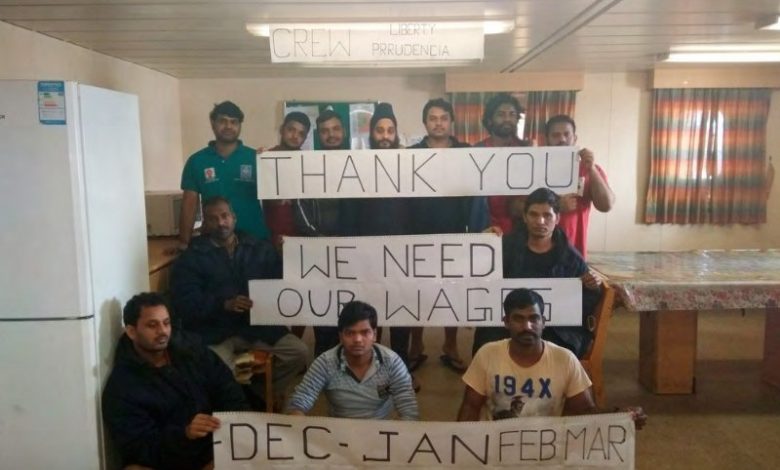Insurers refuse to cut ties with crew abandonment offenders

A key part of Splash’s crew abandonment campaign has been to engage as many different sectors of shipping as possible in order to attack this problem from multiple angles. When it came to insurance, Splash felt it might have found an ideal industry to take the punitive action necessary to rid shipping of this vile practice. However, while the world’s top P&I Clubs have actually done more than most to assist the thousands of stranded seafarers during the downturn, they do still have many repeat crew abandonment repeat offenders on their books and appear unwilling to show these owners the door.
From January 18 this year important new rules came into force on crew abandonment.
Under the Maritime Labour Convention 2006 (MLC) shipowners must have insurance to assist the seafarers on board vessels if they are abandoned.
All ships, to which the convention applies, whose flag states have ratified the MLC must have the insurance certificate onboard and on show in English.
The insurance will cover seafarers for up to four months outstanding wages and entitlements in line with their employment agreement or CBA.
The insurance must also cover reasonable expenses such as repatriation, food, clothing where necessary, accommodation, drinking water, essential fuel for survival on board and any necessary medical care. It will apply from the moment of abandonment to the time of arrival back home.
This new insurance cover is commendable, but P&I Clubs could go a step further in eradicating the problem by blacklisting offenders.
However, Andrew Bardot, the executive officer of the International Group of P&I Clubs for the past 11 years, has declined to take the same pledge the world’s top shipmanagers did on Monday, specifically not doing any business with companies who have abandoned crew recently.
Interviewed by Splash, Bardot, who was formerly a lawyer, said insurers would certainly be circumspect about dealing with owners who had abandoned seafarers, but that did not necessarily mean the clubs would turn business away.
“Abandonment generally arises following the financial failure of the shipowner which usually leaves a trail of unsatisfied creditors including insurers,” Bardot said. “Should that shipowner re-emerge from the ashes at a later stage in a new shipowning venture, it is likely that a club or clubs who are approached to provide cover will be or will become aware of this which would be a strong disincentive to accepting the vessel/s for entry. Each case would however have to be looked at on its own facts.”
Bardot insisted that P&I Clubs do go out of their way to try and make sure abandonments do not happen in the first place.
“Group clubs have successfully assisted owners to mitigate or prevent an abandonment happening on at least four occasions and it will always be the clubs’ preference to assist owners and seafarers in this way, which helps to preserve seafarer jobs and disruption to seafarers’ lives,” he said. Bardot also pointed out that even if insurance is terminated post abandonment, the seafarer is eligible to submit claims for repatriation and salary arrears for up to four months prior to the date of the deemed abandonment. The club will remain liable to honour its certificate obligations until substantiated claims arising from the abandonment are paid.
Tomorrow the world’s leading shipping charities have their say on crew abandonment.

In fairness to Andrew Bardot, whom I confess to having known for thirty years and more, the International Group may not considered the question formally and Andrew may have had to proffer the only answer possible in the circumstances.
It is possible that thoughts of D-G IV of the EU Commission may be present to the minds of the Group Clubs also.
But that isn’t really an excuse. The Group Clubs can, and should, do better.
Put it on the agenda for the next meeting, Andrew..
Insurance is chance (risk) and there is the chance that it may not happen and they keep that premium. If they don’t somebody else will insure these ship owners… perhaps that’s the thinking. Also just increase the premium for repeat offenders etc. there are ways. I am not knowledgeable on how these things work, but businesses are not set up to lose even if it appears so on the surface. The first and most likely casualty is the employee.